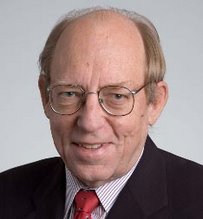 It was a hard day. In the morning we were somewhat encouraged by the Synod voting to say that the Blessing was "not in conflict" with core doctrine of the Church. Clergy and laity were quite clear in their opinion (152 to 27), the bishops divided (21 to 19). A theologian told me that this was the important vote-if the Blessing is not in conflict with what we have to believe, we can do it. But he's a theologian.
It was a hard day. In the morning we were somewhat encouraged by the Synod voting to say that the Blessing was "not in conflict" with core doctrine of the Church. Clergy and laity were quite clear in their opinion (152 to 27), the bishops divided (21 to 19). A theologian told me that this was the important vote-if the Blessing is not in conflict with what we have to believe, we can do it. But he's a theologian.
More important was the vote on the actual Blessing itself, the resolution that had first been brought up in 2004 and postponed till this Synod - that the Synod "affirmed" that diocesan bishops have to "authority and jurisdiction" to allow their priests to bless gay and lesbian couples (with appropriate safeguards for priests and parishes which do not agree with the Blessing). It was called the "local option" resolution. Laity voted 57% for it (78 to 59); clergy voted 54% for it (63 to 53); but the bishops in effect vetoed it, by two votes (19 in favour to 21). During the arguments and votes I had a sense of deja vu. It seemed like 2001 (in our diocese) all over again. The laity and clergy in favour (after an emotional debate), but the bishop unable to go ahead.
Why did this happen? Of course one reason is the votes from most rural and northern bishops from theologically conservative dioceses, who serve far fewer people than the bishops in the large urban areas of Vancouver, Toronto, and Montreal (who generally favoured the Blessing). The Order of Bishops is definitely not rep by pop, and Bishop Michael Ingham of our diocese pointed that out to a reporter.
But we knew that was going to happen. To me what was crucial were the votes of the swing bishops - those who may even have voted in favour of the previous resolution - that there is nothing doctrinally wrong with the Blessing - but who must have feared what organized conservatives (the Essentials coalition, primarily) could do in their diocese, and would do, if the Church adopted the Blessing. They didn't want to go through what Michael has - a portion of parishes leaving, and the withdrawal of financial support. Some dioceses are in a far more precarious position than the Diocese of New Westminster, which, financially, is in pretty good shape.
I think these swing bishops recognize that with the laity and the clergy in favour of the Blessing, it is pretty inevitable. "Yes, but not now," is what one delegate said. Things will quiet down and in 3, 6, 9 years we can go ahead.
I went to the microphone at one point to argue that the unity of the Church is not so much threatened by going ahead now with the Blessing but by delay and allowing the dispute to fester. So is the potential for growth and membership threatened.
But the swing bishops who opposed the Blessing now - bishops from urban areas like Victoria or Fredericton or maybe even Edmonton - felt differently. I hope they are right, and the Church will simply evolve and in 2010 calmly accept the Blessing. But advocates will not simply give up, and the conservatives - who certainly can't take a lot of comfort in such a narrow victory - will continue to press their case. And we'll keep being a Church in debate. Mostly I fear a lack of order - that quite publicly priests will start defying their bishops and blessing anyway. Then the swing bishops will really be on the hot seat.
But things aren't over yet at this Synod. Today (Monday) the Synod will be asked whether New Westminster, having begun Blessings, can continue. That is, will we be "grandfathered." Again, I suspect clergy and laity will agree. The question will be decided by the bishops.
Sunday, June 24, 2007
Subscribe to:
Post Comments (Atom)

1 comment:
Thanks for the excellent snapshots of the days' proceedings!
Neale, I haven't seen what - if anything - happened to the "notwithstanding" motion concerning what our diocese is doing. Did it come to a vote?
Post a Comment